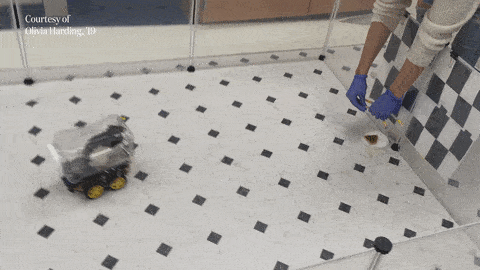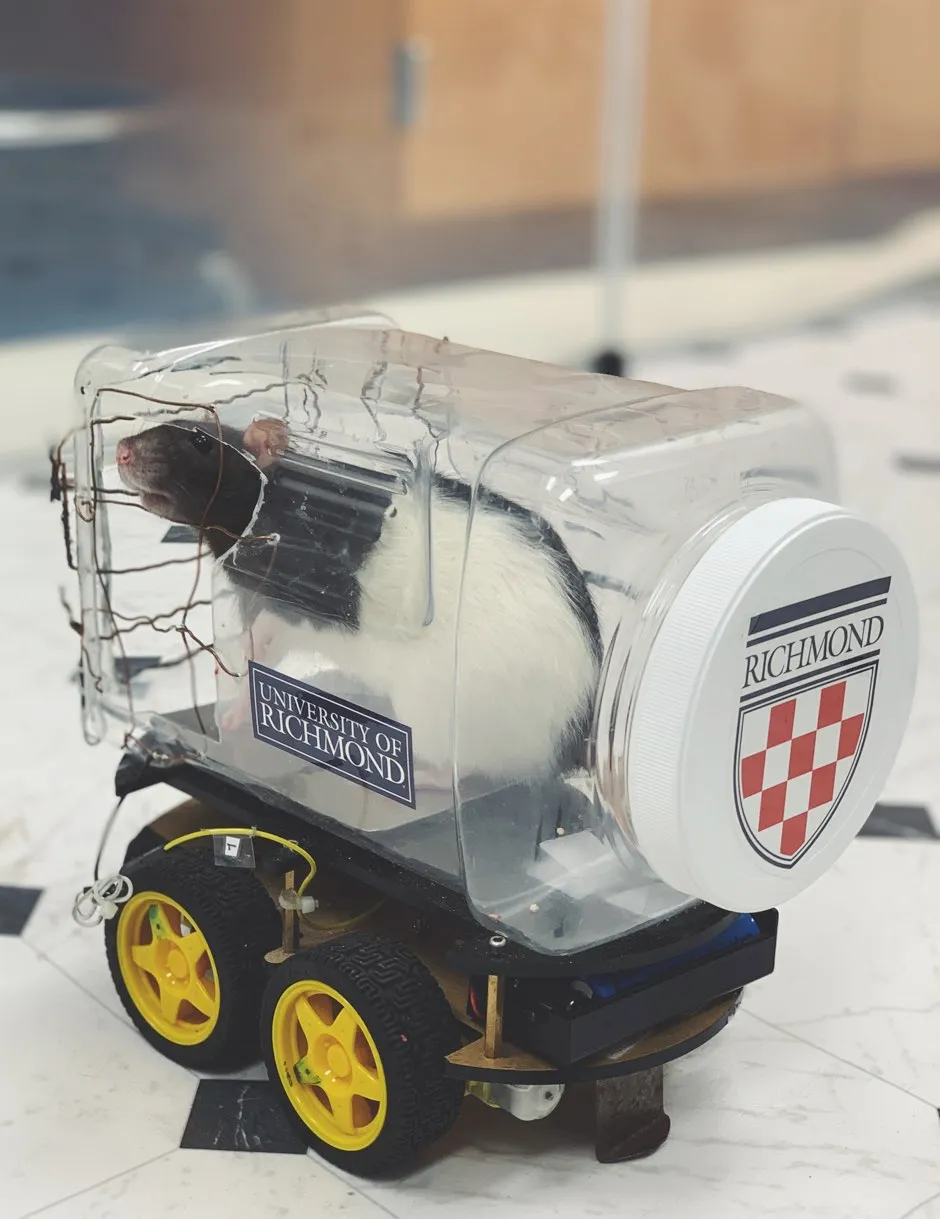For many of us, learning to drive is not a particularly pleasant experience. Being behind the steering wheel for the first time and not knowing exactly how to control it is likely to be up there as one of the most stressful things we’ve ever done. Not so for rats, it seems. Researchers at the University of Richmond in the US have found that learning to drive actually helps the rodents to feel more relaxed.
Using food treats as a reward, the team trained a group of 17 rats to drive tiny cars. They built the cars by fixing a clear plastic jar onto a wheeled aluminium base containing an electric motor. They then created a 'steering wheel’ by threading a copper wire across the front of the car to form three bars: one on the left, one in the middle, and one on the right.
To drive the car, the rats simply had to sit on the aluminium plate and touch one of the copper bars to complete the circuit and move the car in the desired direction. After a few months, the rats had mastered the technique and could drive across an enclosure to collect treats.

After the tasks had been completed, the researchers measured the levels of stress hormones in the rats’ faeces. They discovered that the act of driving the mini ratmobiles had a calming effect on the rodents.
“When we measured hormones associated with stress, corticosterone; and resilience, DHEA, in their poop, we found that the training itself changed the hormones in a healthy trajectory [higher DHEA/CORT ratios]; therefore, we found that driving training led to more resilient stress hormone profiles,” said Lambert.
The same stress-relieving effect was not seen in rats that had ridden in the cars as passengers.

As rat brains contain all of the same areas and neurochemicals as human brains, albeit in a smaller package, investigating the changes that occur when they carry out specific tasks could provide a model for studying the negative impact of chronic stress and how it compromises mental health in humans, the researchers say.
The team is now planning further experiments to determine how the brain changes when learning the driving skill and how mastering new tasks affects rats’ stress responses and ability to cope with new challenges.
Read more about unusual animal studies:

